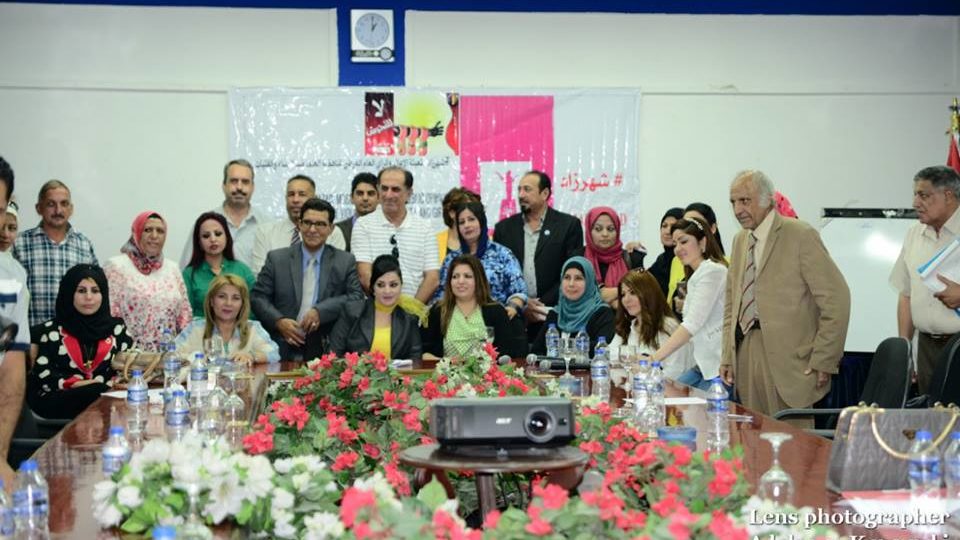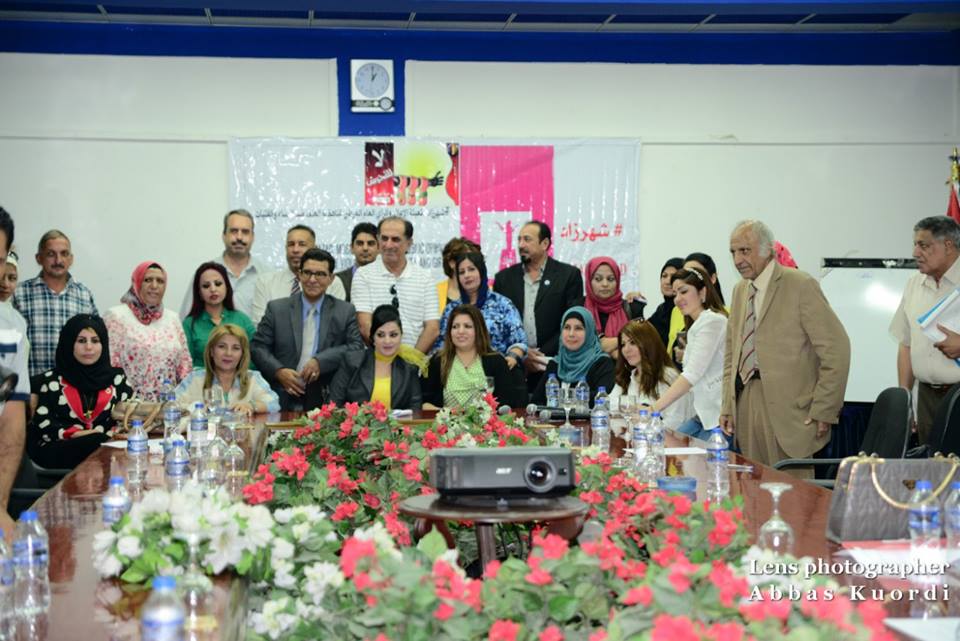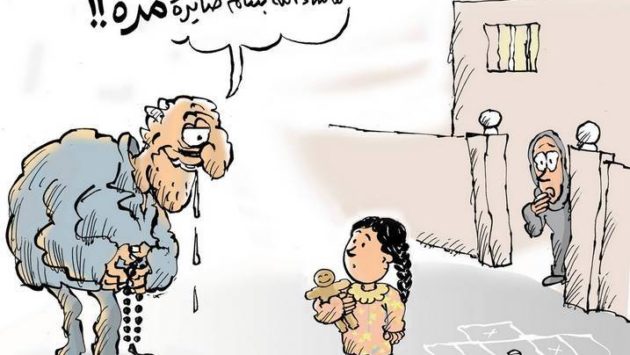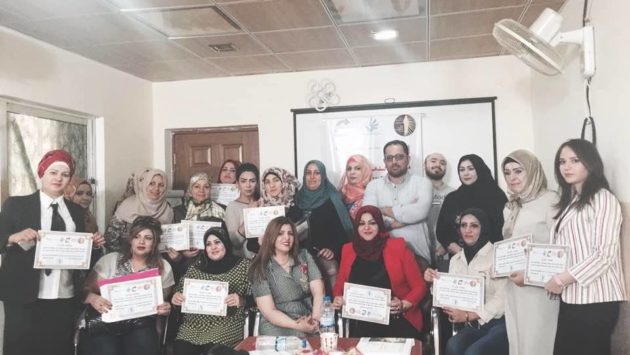The Iraqi Women Journalists Forum Breaks the Silence about Sexual Harassment of Girls and Women in Iraq
Shahrazad Campaign – The Iraqi Civil Society Solidarity Initiative (ICSSI) – September 2015
The silence surrounding the existence of sexual harassment in Iraqi society in general and in Baghdadi society in particular has finally been broken by a newly released report. The Iraqi Women Journalists Forum (IWJF) effectively eliminated the fear of talking about sexual harassment and made a concerted attempt to find solutions to combat this destructive activity. This was no small feat, for sexual harassment has been a problem for a long time, made more difficult to combat due to the block that forbade any discussion or recognition of the phenomenon, of its causes, and of the risks involved in continuing the policy of isolating males and females from childhood.
For the first time in Iraq’s recent history, IWJF held a conference in the hall at the Iraqi Oil Cultural Center in Baghdad that addressed sexual harassement in Iraqi society. The conference presented the results of a study on the phenomenon set up by the Forum, and showed a hearing session video on a woman who had been the victim of harassment. The conference also included discussions that dealt with the legal and social aspects of sexual harassment.
Mrs. Nibras Al-Maamouri, the head of IWJF presented the results of the study which showed the high rates of sexual harassment of women and girls in public and work places, including governmental institutions. The study pointed out that the official authorities and the community are keeping quiet about harassment, and tend to condemn the victim herself. Al-Maamouri said that “There is a great disregard towards and denial of the phenomenon of sexual harassment at the official level instead of action aimed to reduce it through, for instance, the enactment of a law that criminalizes the harasser. Such legislation was supported by 98% of the women who responded to the survey”.
The social researcher, Dr. Basma Al-Awqaty, highlighted an important finding at the conference: data seems to prove that the policy (adopted by the Ministry of Education) that isolates males and females since childhood had a high impact on rising the occurrence of sexual harassment. She confirmed that “the rates of sexual harassment were highest in closed and extremist communities, and that the separation of the two sexes in schools and universities increased the seriousness of sexual harassment as it fostered a sense of isolation between boys and girls, and cultivated barriers between them which caused trouble when they were suddenly confronted with the openness of work life/life outside school. The psychological pressure at those moments of integration led to increased harassment”.
Dr. Bushra Al-Obaidi, the official responsible for women’s affairs in the High Commissioner for Human Rights, addressed the legal aspects of sexual harassment and pushed for the amendment of the Iraqi Penal Law No. 111 of 1969, which criminalizes sexual harassment, to be adopted. She argued that “The Penal Code (in particular, articles 400 to 404) includes a weak definition of criminalization and insufficient punishment which in turn, fails to deter any form of harassment,”.
Al-Obaidi noted the need to ensure that Iraqi laws, policies and accepted practices be consistent with international obligations related to discrimination against women.
The conference addressed a variety of solutions put forward by the study, such as: changing the curriculum in schools to raise awareness and reduce the occurrence of sexual harassment, giving social researchers a distinct role in schools, colleges and government departments, developing legislation and sanctions which criminalize the harasser, intensifying campaigns that talk about the seriousness of this phenomenon, allocating hotlines with psychologists and specialists to help victims overcome the psychological and neurological effects of sexual harassment, assisting victims of domestic violence, and above all, ending the policy of gender isolation in schools. In addition, the study recognized the need to reduce unemployment, poverty and to oppose underage marriage through the adoption of effective economic strategies by the government.
This conference comes within the framework of the Shahrazad campaign and its activities. This is a campaign promoted and supported by civil society organizations that aims to end the phenomenon of sexual harassment and underage marriage. The Campaign is led by The Iraqi Women Journalists Forum (IWJF) in Baghdad and by Al-Masalla Organization for Human Resources Development in Kurdistan. It conducts its activities in Kurdistan and the rest of Iraq in cooperation with the Iraqi Social Forum and number of other civil society organizations. The Shahrazad Campaign enjoys international support and cooperates with international organizations, including the Iraqi Civil Society Solidarity Initiative (ICSSI) as well as the organization, Un Ponte Per.
This conference was attended by many members of IWJF and other activists involved in this struggle, a received broad coverage by the Iraqi media, which is still circulating news about the conference and the results of the study presented there.
To download the study in PDF, Click here
For more information, you can visit Shahrazad campaign page on Facebook





